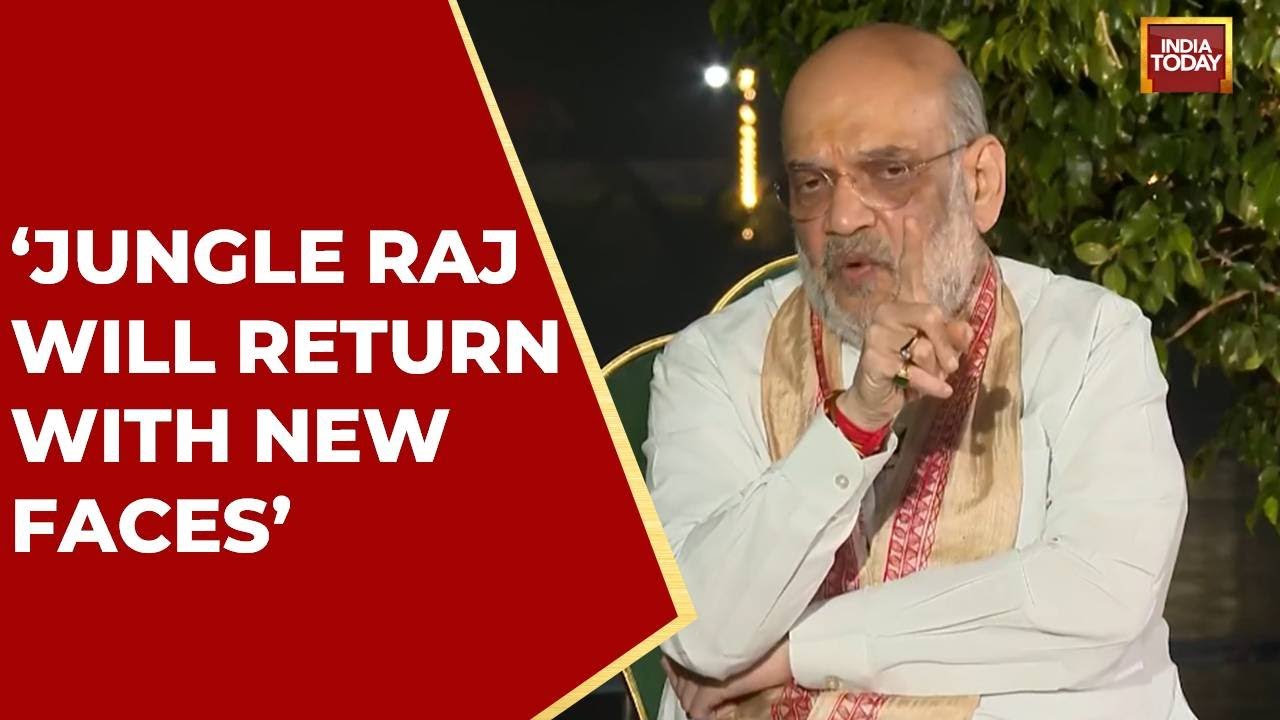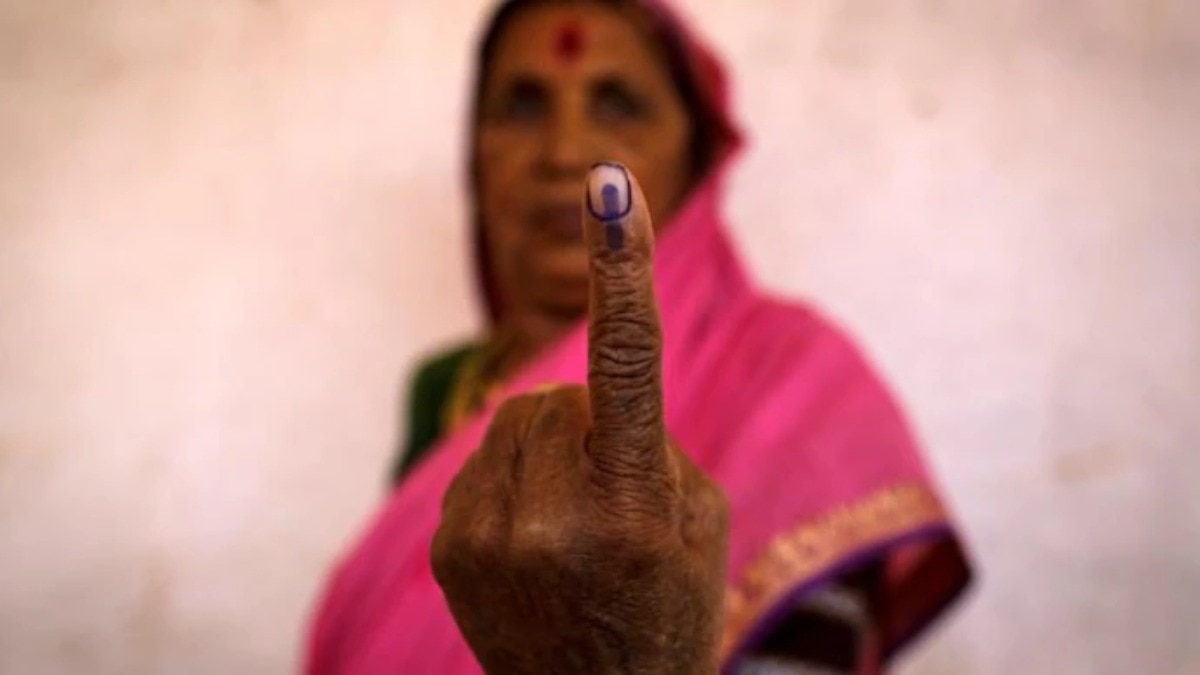ARTICLE AD BOX
Last Updated:November 04, 2025, 16:30 IST
A marriage between a Syed woman and a non-Syed man in a TV drama ‘Sher’ has ignited a blasphemy case and an online storm in Pakistan

The series, starring Danish Taimoor and Sarah Khan, tells the story of Sher Zaman and Fajar, two lovers from rival families who must confront old feuds and social barriers to be together. (Image: X)
When Pakistani television network ARY Digital launched its latest prime-time drama Sher, few expected it would trigger a police case under Pakistan’s blasphemy laws. The series, starring Danish Taimoor and Sarah Khan, tells the story of Sher Zaman and Fajar, two lovers from rival families who must confront old feuds and social barriers to be together.
But one particular plotline, a marriage between a Syed woman and a non-Syed man, has provoked sharp backlash from sections of Pakistan’s Shia community. In Sindh’s Dadu district, Shia activists filed a formal First Information Report (FIR) accusing ARY Digital of “insulting Syeds, the Prophet’s progenies."
The complainants argue that by depicting such a union, the show disrespects the lineage and purity of Syeds, regarded as descendants of Prophet Muhammad through his grandsons Hasan and Husayn.
The FIR, registered on 6 October under Sections 295A and 298A of the Pakistan Penal Code, names the CEO of ARY Digital, the director, and the show’s writers as accused. The complaint alleges that the serial’s content “has deeply hurt the sentiments of the Syed community and amounts to blasphemy."
The legal charges are serious. Section 295A criminalises deliberate and malicious acts intended to outrage religious feelings, while Section 298A punishes derogatory remarks against revered personages of Islam.
In Pakistan’s charged socio-religious climate, blasphemy accusations have often carried heavy consequences, even when directed at artistic works.
How Did The Public React?
As news of the FIR spread, Pakistan’s social media exploded with a mix of outrage, ridicule, and disbelief. On X and Reddit, many users mocked what they saw as hypersensitivity over a fictional marriage. “Pakistan seems to have more Syeds than the entire Arabian Peninsula," one user joked. Another commented wryly, “How is this blasphemy?" to which someone replied, “By Pak logistics."
Pakistan seems to have more Syed than the entire Arabian Peninsula. In Karachi, every third person one meets or comes across is a Syed. Literally, one can buy half a dozen Syeds for Rs. 500. Buy a full dozen & you get two for free. https://t.co/eotAtiUWSu— Faisal Naseer (@fnakhi) October 27, 2025
A Reddit user remarked that the controversy “looks like someone woke up from a sleep and thought about minting money from a super hit drama."
Yet beneath the humour lies a deeper unease. The uproar exposes Pakistan’s entrenched hierarchies of caste, lineage, and sect — subjects rarely discussed openly in a country that constitutionally identifies as Islamic and egalitarian.
What Does ‘Syedism’ Mean In Pakistan’s Social Context?
Syedism, or Syed supremacy, is a social and religious construct that places Syeds at the apex of a perceived hierarchy of Muslim lineages.
Syeds claim descent from the Prophet Muhammad through his grandsons Hasan and Husayn. Within this lineage, descendants of Hasan are often called Shareefs, while those of Husayn are referred to as Syeds. Over centuries, this ancestry came to confer not only religious reverence but also social status.
The hierarchy extends beyond the Syeds. Historically, Muslim society in South Asia has been stratified into two broad categories: Ashraf (noble-born, often claiming Arab, Persian or Central Asian descent) and Ajlaf (local converts). Within the Ashraf group, Syeds rank highest, followed by Pathans, Mughals, and Sheikhs, while the Ajlaf include occupational and artisanal groups whose ancestors converted from lower Hindu castes.
At the bottom lie the Pasmandas, a Persian word meaning “those left behind", who comprise the majority of South Asia’s Muslim population but remain politically and socially marginalised.
Despite Islam’s doctrinal rejection of caste, these hierarchies continue to shape marriage norms, mosque segregation, and everyday social interactions.
How Deeply Is Caste Embedded In Pakistani Society?
Casteism in Pakistan is neither marginal nor confined to rural Sindh or Punjab. In a 2020 article for Al Jazeera, Shaista Abdul Aziz Patel, Assistant Professor of Critical Muslim Studies at the University of California, San Diego, noted that Pakistan officially recognises about 40 castes, 32 of which were once listed as scheduled castes under a 1957 Presidential Ordinance.
A 2007 report by journalist Zulfiqar Shah revealed that even a six per cent government job quota for scheduled castes, announced soon after Partition, was scrapped in the 1990s, depriving these communities of political or economic safeguards. Haris Gazdar, an anti-caste researcher, describes how caste prejudice persists through coded social practices: segregated dining, pejorative slurs, land theft, beatings, and sexual violence that reinforce upper-caste dominance.
Upper-caste Muslims often invoke ideas of ritual purity — paak (pure) and naapak (impure) — to justify exclusion, claiming that certain groups eat forbidden or “unclean" food. These taboos persist even when lower-caste Hindus or Christians convert to Islam. Conversion rarely erases caste identity; it merely repaints it in Islamic terms.
How Has Caste Operated Across South Asian Islam?
These hierarchies trace back to early Islamic expansion in the subcontinent, when invading groups distinguished themselves from local converts. Over time, categories such as Ashraf and Ajlaf emerged to preserve status distinctions that Islam theoretically rejects. Social reformers and scholars have long acknowledged this contradiction.
Even B. R. Ambedkar, in Pakistan or the Partition of India, wrote that “if slavery has gone, caste among Muslims has remained," noting that Muslim society “is afflicted by the same social evils as the Hindu society."
That critique still resonates today. The BBC’s 2016 report on “untouchable Muslims" found that Dalit Muslims often face segregation in mosques, schools, and even burial grounds. In some localities, separate water vessels are kept for Dalit Muslim sweepers, a reminder that caste practices cut across religious identities.
The Pasmanda movement in India and parts of Pakistan continues to challenge these hierarchies, demanding equal representation and recognition of discrimination within Muslim society.

Karishma Jain, Chief Sub Editor at News18.com, writes and edits opinion pieces on a variety of subjects, including Indian politics and policy, culture and the arts, technology and social change. Follow her @kar...Read More
Karishma Jain, Chief Sub Editor at News18.com, writes and edits opinion pieces on a variety of subjects, including Indian politics and policy, culture and the arts, technology and social change. Follow her @kar...
Read More
First Published:
November 04, 2025, 16:30 IST
News explainers A TV Drama’s Fictional Wedding Has Become A Real Blasphemy Case In Pakistan: Here’s Why
Disclaimer: Comments reflect users’ views, not News18’s. Please keep discussions respectful and constructive. Abusive, defamatory, or illegal comments will be removed. News18 may disable any comment at its discretion. By posting, you agree to our Terms of Use and Privacy Policy.
Read More

 4 hours ago
6
4 hours ago
6









 English (US) ·
English (US) ·